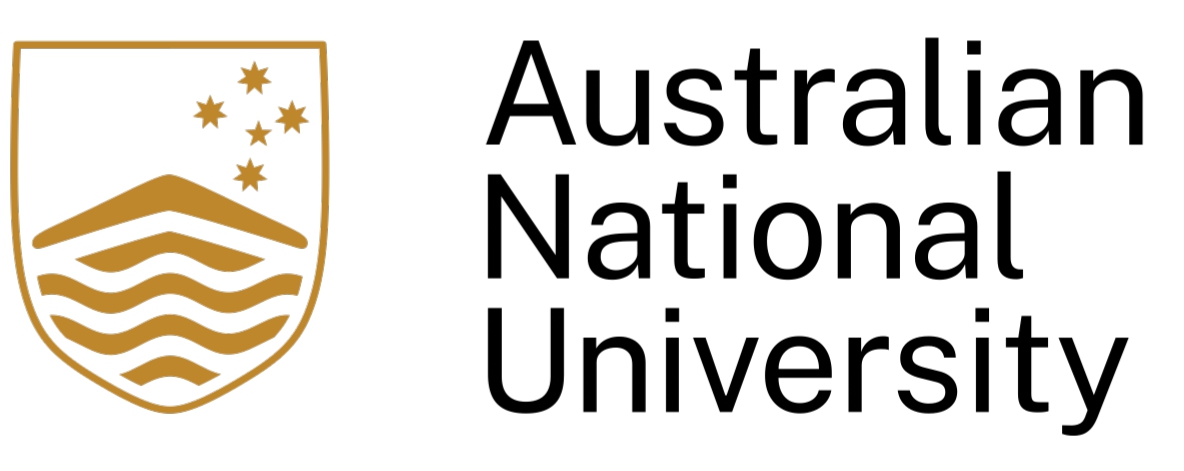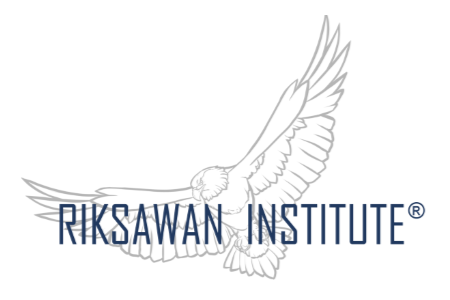Aim and Scope
International Journal of Global Community (IJGC-RI) is an open-access peer-reviewed journal that is published by the Riksawan Institute. IJGC - RI is published three times a year, in March, July, and November. IJGC - RI provides a platform and welcome for the researchers, academicians, professionals, practitioners, and students to impart and share knowledge in the form of empirical and theoretical research papers, essays, case studies, literature reviews, and book reviews from all over the world. The spirit of the International Journal of Global Community is sciences for empowering people without discrimination. That's why the journal is free of charges for all of the stages but still keeps hard on the quality of the publication.
International Journal of Global Community publishes in both print and online versions publish papers in the field of Social Sciences and Humanities studies, namely Human Rights, Social Justice, Communication, Sociology, Social Welfare, Anthropology, Religious Studies, Cultural, Public Administration, Psychology, Philosophy, Political Science, History, Education, Women Studies and so on.
Publication Ethics and Malpractice Statement
Ethics and Malpractice Statement
International Journal of Global Community is respectful of the ethics of publication and warns to Author(s), Readers, Reviewers, Editors, and Publishers to respect them as well. As the best practice, the IJGC-RI learns from Elsevier and COPE's Guidelines.
Publication decision
The Editor in Chief and the Editorial Team is responsible for deciding which articles should be published based on the benefits and importance of the articles to society. Editorials are guided by applicable legal requirements regarding defamation, copyright infringement, and plagiarism.
Confidentiality
Editors and any editorial staff may not disclose any information about submitted manuscripts to anyone other than the respective authors, reviewers, prospective reviewers, other editorial advisors and publishers, as appropriate.
Complaints
The complaints will be clarified to a respected person with respect to the case of the complaint. The scope of complaints related to the journal business process, i.e. editorial process, found citation manipulation, unfair reviewer, peer-review manipulation, etc. The complaint cases should be sent by email.
Fair play
An editor at any time evaluates manuscripts for their intellectual content without regard to race, gender, sexual orientation, religious belief, ethnic origin, citizenship, or political philosophy of the authors.
Disclosure and conflicts of interest
Unpublished material disclosed in submitted manuscripts may not be used in the editor's own research without the written consent of the author.
Reviewer's Task
Contribution to Editorial Decisions
Peer reviews assist editors in making editorial decisions and editorial communication with authors can also assist authors in improving papers.
Speed
Any selected reviewer who feels unqualified to review the research reported in a manuscript or knows that immediate review is not possible, must notify the editor and withdraw from the review process.
Confidentiality
Any manuscript received for review must be treated as a confidential document. They may not be shown or discussed with others except as permitted by the editor.
Objectivity Standard
Review must be done objectively. Personal criticism of the author is inappropriate. Referees must express their views clearly with supporting arguments.
Disclosure and Conflict of Interest
Privileged information or ideas obtained through peer review must be kept confidential and not used for personal gain. Reviewers should not consider manuscripts in which they have a conflict of interest resulting from a competitive, collaborative, or other relationship or connection with the author, company, or any institution with which the paper is related.
Author's Task
Originality and Plagiarism
Authors must ensure that they have written entirely original work, and if the authors have used the work and/or words of others, then these have been properly cited or cited. Plagiarism (i.e., taken from another source or author without explicit acknowledgment or permission from the original author and source. - including self-plagiarism) is unethical and unaccepted in this journal and considered a serious breach of professional conduct, with potentially severe ethical and legal consequences. Plagiarism is strictly author's responsibility.
Reporting standards
Authors of the original research report must present an accurate account of the work done as well as an objective discussion of its significance. The underlying data must be represented accurately on paper. A paper must contain sufficient detail and references to allow others to replicate the work. Statements that are deceptive or intentionally inaccurate are unethical and unacceptable behavior.
Multiple, Redundant, or Concurrent Publications
An author may not, in general, publish a manuscript describing essentially the same research in more than one major journal or publication. Submitting the same manuscript to more than one journal at the same time constitutes unethical publishing behavior and is unacceptable.
Fundamental Errors of Published Article
The author has obligation to immediately notify the journal editor and cooperate with the editor to retract or correct the paper if found fundamental errors or significant errors or inaccuracies in his published article.
Source Acknowledgment
Proper acknowledgment of the work of others should always be given. Authors should cite publications that were influential in determining the nature of the reported work.
Ethical Oversight
If the research work involves chemicals, human, animals, procedures or equipment that have any unusual hazards inherent in their use, the author must clearly identify these in the manuscript in order to obey ethical conduct of research using animals and human subjects. If required, Authors must provide legal ethical clearance from association or legal organization.
If the research involves confidential data and of business/marketing practices, authors should clearly justify this matter whether the data or information will be hidden securely or not.
Post-Publication Discussions and Corrections
In case the reader gives discussions and corrections toward a published article, the reader should contact by email to Editor in Chief by explaining the discussions and corrections. If accepted (by Editor in Chief), the discussions and corrections will be published in the next issue as Letter to Editor. Respected Authors can reply/answer the discussions and corrections from the reader by sending the reply to Editor in Chief. Therefore, Editors may publish the answer as Reply to Letter to Editor.
Editorial Policy and Decision
Submitted article will be evaluated by the reviewer(s) whose feedback will contribute to the editor’s decision on whether to accept or reject your article for publication. The journal editor invites reviewers who are experts in your article’s subject matter to evaluate the article and provide feedback.
Peer review conducted in a single-blind or double-blind review. In single-blind, the names of the reviewers are not shared with the author but the reviewers are aware of the author’s identity. In double-blind, neither the author nor the reviewers are aware of each others’ identity.
Editors or reviewers will treat manuscripts under review as confidential, recognizing them as the intellectual property of the author(s). During the peer review process, editors and reviewers are looking for the article appropriate for this journal, novelty, originality, data analyzed, ideas logically, and significant contribution.
The Editor-in-Chief has accountable for acceptance or rejection of an article, including pending and embargo an article. The Editor-in-Chief will make correct errors in an article if the errors are detected or reported before publication, or publish corrections if they are detected afterward, including recalls from publication.
Article Withdrawal and Retraction
Articles that meet the element of Infringements of the code of ethics upon the awareness of the author can make a withdrawal of his article accompanied by a letter of statement withdrawal addressed to the editorial board of the journal.
A retraction is carried out if an article is indicated to have an Infringement of scientific ethical codes, such as double submissions, false claims of authorship, plagiarism, self-morningism, fraudulent use of data, fake authors or the like. Also, a retraction will be used to correct errors in submission or publication.
Copyright and Open Access
COPYRIGHTS
Submission of a manuscript implies:
- The copyright of the article is retaining by Author (s).
- The article has not been published before (except in the form of an abstract or as part of a published lecture, review, or thesis);
- The article is not under consideration for publication elsewhere;
- That its publication has been approved by all coauthors, if any, as well as by the responsible authorities at the institute where the work has been carried out;
- The manuscript will not be published elsewhere in any language without the consent of the copyright holders.
PLAGIARISM
- Plagiarism and self-plagiarism are not allowed;
- The authors should ensure that they have written entirely original works, and if the authors have used the work and/or words of others that this has been appropriately cited or quoted;
- An author should not in general publish manuscripts describing essentially the same research in more than one journal or primary publication. Submitting the same manuscript to more than one journal concurrently constitutes unethical publishing behavior and is unacceptable;
- Proper acknowledgment of the work of others must always be given. Authors should cite publications that have been influential in determining the nature of the reported work.
OPEN ACCESS
The International Journal of Global Community is an Open Access journal under Attribution-NonCommercial-ShareAlike 4.0 International license (CC BY-NC-SA 4.0). Please read carefully and learn more at https://creativecommons.org/licenses/by-nc-sa/4.0/deed.en
Under the following terms:
- Attribution— You must give appropriate credit, provide a link to the license, and indicate if changes were made. You may do so in any reasonable manner, but not in any way that suggests the licensor endorses you or your use.
- NonCommercial— You may not use the material for commercial purposes.
- ShareAlike— If you remix, transform, or build upon the material, you must distribute your contributions under the same license as the original.
- No additional restrictions— You may not apply legal terms or technological measures that legally restrict others from doing anything the license permits.
Notices:
- You do not have to comply with the license for elements of the material in the public domain or where your use is permitted by an applicable exception or limitation.
- No warranties are given. The license may not give you all of the permissions necessary for your intended use. For example, other rights such as publicity, privacy, or moral rightsmay limit how you use the material.


.jpg)
.jpg)
.jpg)
.jpg)


.jpg) .
.

.jpg)

.jpg)

.jpg)




